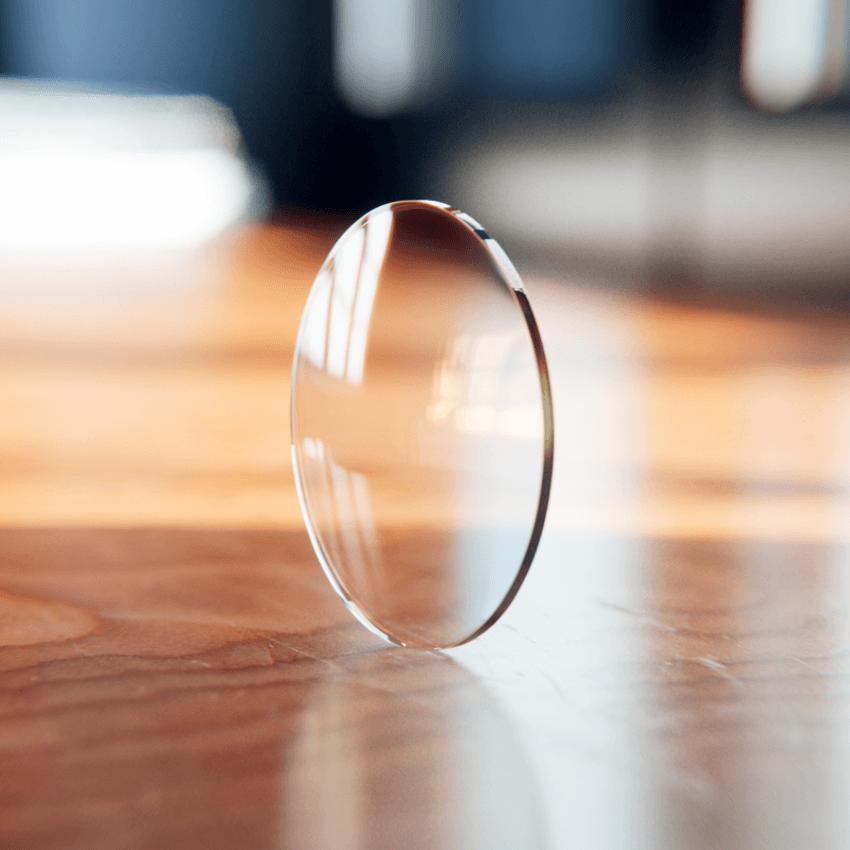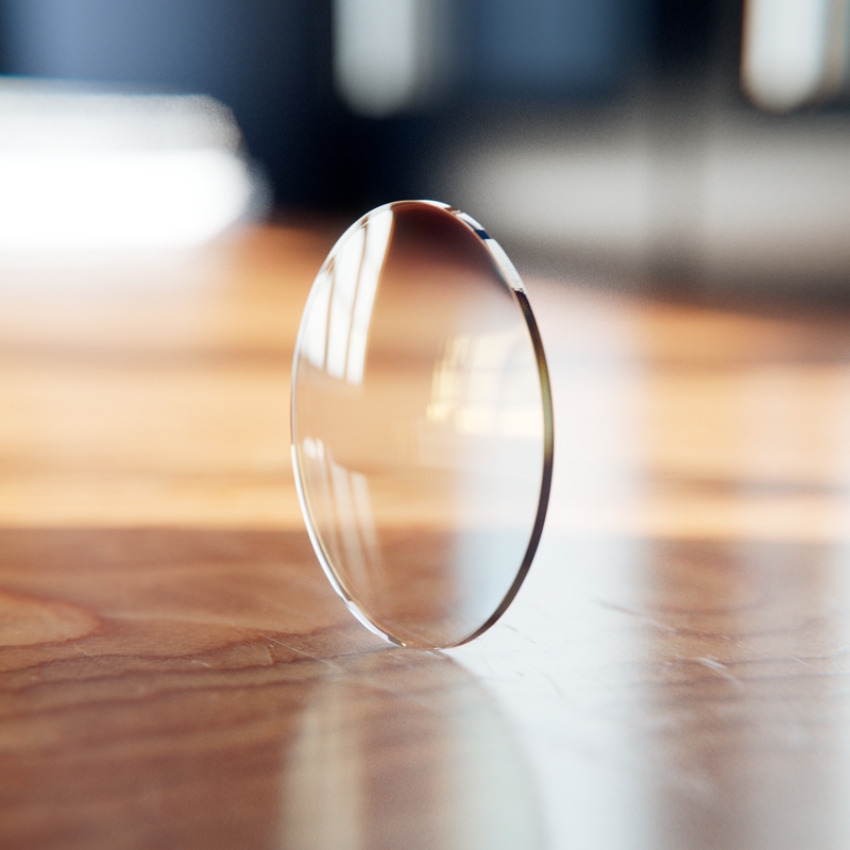A Clearer Vision with High Index Lenses: Lighter, Thinner, and More Comfortable Eyewear
- BY Dr. Sophia Moh
- IN Lenses

Are you tired of eyeglasses that are too heavy, bulky, or make your eyes look bug-eyed? Then it’s high time to consider investing in high index lenses. Unlike traditional lenses, high index lenses are thinner, lighter, and designed to effectively correct vision without the extra thickness. Let’s take a deep dive into the world of high index lenses and discover why they might be the perfect choice for your eyewear needs.
Understanding High Index Lenses

Manufactured using advanced MR material from Mitsui Chemicals, high index lenses get their name for having a higher index of refraction. This simply means they can bend light more efficiently than regular glass or plastic lenses. The ability to bend light effectively allows these lenses to be much thinner than regular lenses. Here are some of the key benefits:
- Comfort: Because they are thinner and lighter, high index lenses are more comfortable to wear, especially for long periods.
- Appearance: They are more aesthetically pleasing as they don’t give that “bug-eyed” look that thicker lenses tend to create.
- Vision Correction: They are perfect for individuals with high prescription levels as they provide the necessary vision correction without the added thickness.
- Durable: High index lenses are typically made of materials that are more resistant to scratching and breaking.
Choosing the Right High Index Lenses

Zenni offers high index lenses in a variety of indices, Hi-index 1.61, 1.67, and 1.74. The higher the index, the thinner the lens. Your choice of index largely depends on your prescription level. Use this prescription to Hi-index lens guide here:
Hi-index 1.61: Prescription power between +/- 3.00
Hi-index 1.67: Prescription power between +/- 3.00 ~ +/- 5.00
Hi-index 1.74: Prescription power greater than +/- 5.00
Adapting to High Index Lenses
Adjusting to high index lenses can be seamless. However, some people may need a little time to get used to the new lenses, especially if they are switching from regular plastic lenses. It’s normal to experience a slight distortion in peripheral vision in the first few days. But with time, your eyes will adapt to the new lenses.
In summary, high index lenses offer a remarkable solution for those seeking thinner, lighter, and more comfortable eyewear. Manufactured using advanced MR material by Mitsui Chemicals, these lenses efficiently bend light, resulting in thinner profiles while maintaining durability. With a variety of high index options from Zenni, including Hi-index 1.61, 1.67, and 1.74, you can find the perfect choice for your prescription, ensuring a seamless transition to more stylish and performance-oriented eyewear.
About the Author: Dr. Sophia Moh, OD, ABOC
Dr. Sophia Moh, OD is an optometrist located in Bay Area, California. She completed her undergraduate studies at UC San Diego and earned her doctorate at UC Berkeley School of Optometry. She has experience in a variety of eye care settings including primary care optometry, general ophthalmology, community health clinic, and Veterans Affairs. Her mission is to help the world see better by developing high-quality, affordable eyewear for everyone. She is also a certified American Board Optician (ABO) and provides training and lectures on optical education topics.




